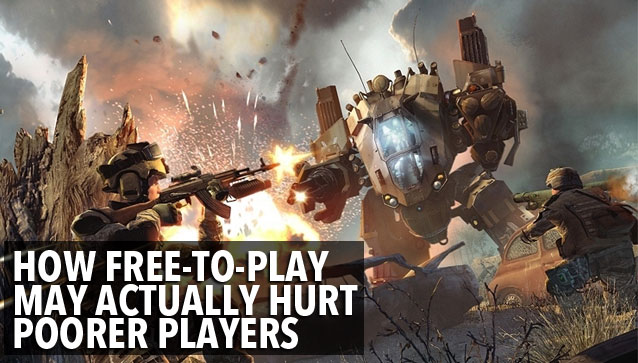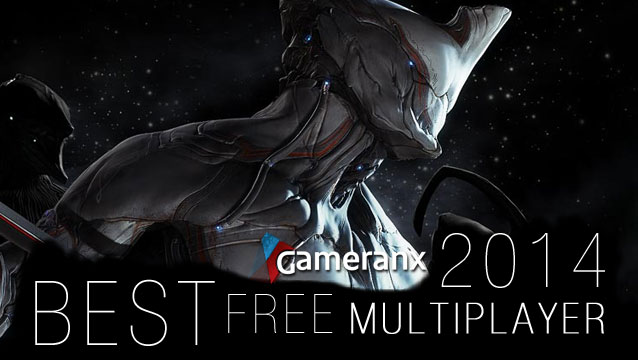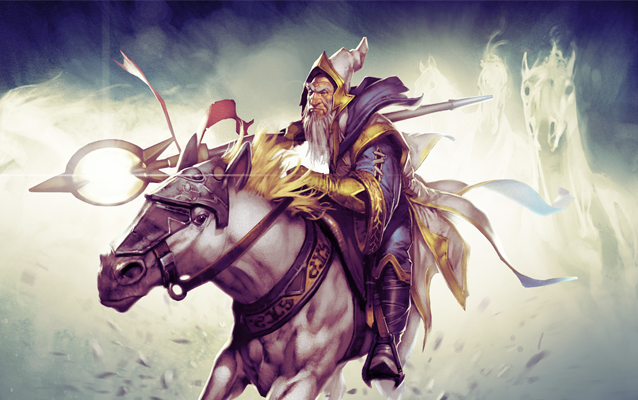


Free-to-play with microtransactions should be a good thing for me as a gamer. In the years that it’s become a popular business model, I’ve been broke, and moved up to merely poor, so a game that I can play at my leisure, and pay as little or as much as I want. That seems like a winning combination. But it’s not.
See, I can’t stand playing most free-to-play games, because they remind me that I can’t, or shouldn’t, pay. Every time I run out of energy in the middle of doing something I want to do in Ravenwood Faire, I am reminded of my lack of money. Every time I need to drop some cash on new items in Empires And Allies, I know that even if I can afford it right now, there’ll be more decisions to make just like this later. I have no idea how much I’ll be able to spend, want to spend, or be encouraged to spend. It’s the last part that really gets under my skin—the slippery slope that says that once I’ve purchased one thing, I may be buying things for weeks or months.
This is not to say that the free-to-play with microtransaction model is always inherently bad. A game like You Don’t Know Jack is free-to-play and doesn’t stress me out, because its distinctions are delineated. You can play once round of trivia per day (maybe twice, every so often) for free. This works, because a trivia round is a simple, set amount of play and time. The only decision is “do I want another?” It also works because the prime competition is against yourself: you “compete” against other players, sure, but it’s indirect. Your only real goal is getting the answers right.
A game like League Of Legends has a fairly nice middle ground, where free access to new champions cycles, giving players the opportunity to try before they buy, and also save those decisions til later. The microtransaction model has proven successful enough in certain venues that many publishers are pushing it elsewhere. I’m chiefly concerned about its placement in narrative games, like the upcoming action/RPG Ultima Forever. The decision-making fatigue there is frustrating me already, with only two classes of eight open to players initially.
I’m not alone in being stressed out by decisions like this. Scientists have begun to understand a cognitive trait called “decision fatigue,” which, quite simply, states that the more decisions people make, the more tired they get. This can lead to persons making bad decisions, so often people respond by making their decisions random, or doing what I do with a free-to-play game and simply shutting down and rejecting new possibilities.
A New York Times article summed the research up in an accessible way, but the part the interested me most was a discussion of people’s decision-making in terms of money:
Dean Spears, an economist at Princeton, offered people in 20 villages in Rajasthan in northwestern India the chance to buy a couple of bars of brand-name soap for the equivalent of less than 20 cents. It was a steep discount off the regular price, yet even that sum was a strain for the people in the 10 poorest villages. Whether or not they bought the soap, the act of making the decision left them with less willpower, as measured afterward in a test of how long they could squeeze a hand grip. In the slightly more affluent villages, people’s willpower wasn’t affected significantly. Because they had more money, they didn’t have to spend as much effort weighing the merits of the soap versus, say, food or medicine.
Obviously buying soap in India is at a different level than most Americans have had to deal with, but then, I have had weeks where I’ve had to stretch $10 for food for as long possible while waiting for a paycheck (the solution, by the way: a stack of tortillas, hunk of cheese, and salsa gets a ton of quesadillas). Even being slightly less financially insecure now, it only takes a decent-sized medical bill to push me into monetary anxiety. The microtransactions still stress me out. Now, I’m not saying this to throw a pity party or anything, but simply to describe that the level of decision-making stress based on monetary issues is quite easily applicable outside of India, and is indeed congruent with my experience playing free-to-play games.
And once you extrapolate further, it’s hard not to come to the conclusions that free-to-play with microtransactions games which hold a constant “you could be playing this better” over a player’s head are more stressful or depleting—and therefore worse as games—for poorer players. This is entirely congruent with my experience and yet the as the opposite of what one might expect from simply hearing the term “free-to-play.”



